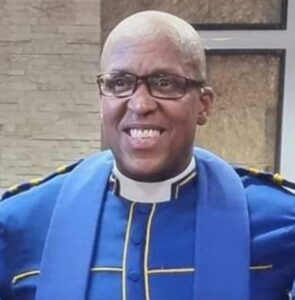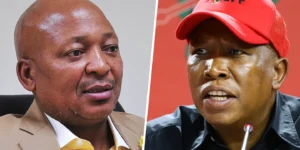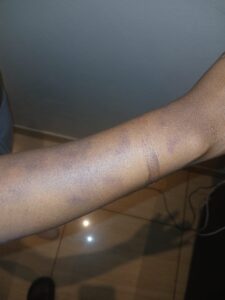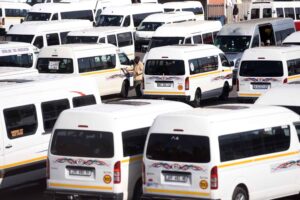By: Clyde N.S Ramalaine
The 40th commemoration of the birth of the former United Democratic Front, which originated on August 20th, 1983, at the Rocklands Civic Centre in Mitchell’s Plain, has brought forth a series of conflicting viewpoints. The circumstances that gave rise to this Mass Democratic Movement, representing internal resistance against the apartheid regime, are irreplaceable and irreproducible.
As such, it cannot be reinitiated elsewhere. However, the current state of South Africa, existing in a state of uncertainty, reflects the populace’s recognised and valid disillusionment with political leadership and governance. Within this context, the historic 40th anniversary serves as an occasion for introspection and expression.
It is essential to recognise that the original conditions that birthed this movement cannot be recreated, lending a unique and unrepeatable quality to its founding. Yet, the current state of South Africa, caught in a state of suspension, reflects the public’s valid sense of dissatisfaction with political leadership and the conduct of governance. Against this backdrop, the commemoration of its historic 40th anniversary offers an opportunity for re-evaluation and open expression.
In light of the foregoing, it becomes apparent that this significant moment is susceptible to manipulation by factional interests, which could tarnish its historical significance. In this era, there is a risk of moral ambiguity and hypocrisy casting a shadow over the celebration, potentially distorting the true essence of the event.
We’ve observed the exchange of letters that define an invitation extended to the liberation struggle, anti-apartheid activist and former patron of the UDF, Rev. Dr. Allan A. Boesak. The ensuing discourse following this initial interaction has been noted.
For the organisers, this may mark a moment of celebration and remembrance. However, for those of us who choose not to partake in this celebration, it stands as a moment of public protest. We maintain that the spirit of the UDF is sacred and should not be exploited for factional interests or political gain. Today, this UDF spirit is essential in confronting ambivalence and addressing governance failures.
It is an established fact that Dr. Boesak was invited due to his distinctive role and contributions at the time. Equally well-known is that, after careful consideration and broad consultation, Boesak respectfully and with sound conviction declined the invitation for the reasons he articulated.
Following his initial refusal, it seems the organisers and their associates have employed various tactics to either persuade him or delegitimise him through labelling him with a particular conviction of 1999. Additional individuals, such as Anglican Archbishop Thabo Makgoba, have also been called upon to correspond with Dr. Boesak, urging him to attend. It is worth noting that in a subsequent letter to Dr. Popo Molefe, the Chairperson of the organising team, Dr. Boesak reiterated his stance, emphasizing the role of clergy and their responsibility to voice concerns about President Ramaphosa’s leadership.
There is a disconcerting inconsistency and lack of integrity when any criticism directed at President Ramaphosa is treated as a automatic threat to South Africa and its stability. Those who have communicated with Dr. Boesak are notably silent when it comes to condemning President Ramaphosa’s leadership. The usually vocal civil society groups and well-funded influential foundations that fervently criticize former President Jacob Zuma are conspicuously absent in condemning President Ramaphosa.
The people of South Africa must inquire about the underlying issue that only labels Zuma’s actions as wrong, while Ramaphosa, who was associated with Zuma in deputy presidency for 5 years, benefitted from his era, engaged in business during his tenure, and has led the country astray with controversies like Glencore and Phala Phala, remains free from justifiable criticism by these morally inconsistent defenders of the constitution. Whose interests are being served by President Ramaphosa’s continued stay in power?
When initial attempts to manipulate and blackmail Boesak fell short, the campaign to delegitimize him gained traction by focusing on his conviction. The story surrounding Dr. Boesak’s 1999 conviction and subsequent incarceration has resurfaced with misleading nuances, now woven into a narrative that certain interviewers, such as Shan Ramkissoon, propagate. These interviewers appear determined to associate Boesak with corruption, placing him on par with current criminals. It’s pertinent to ask why the burden of explaining apartheid-era donor funds managed by leaders of that time is not distributed fairly or honestly.
Curiously absent is the same insistence and energy directed toward late figures like Archbishop Desmond Tutu, Rev. ‘Oom’ Beyers Naude, Mamma Winnie Mandela, and AFM-SA Pastor Frank Chikane, urging them to account for funds they or their organizations managed for the liberation struggle. Rev. Beyers Naude’s garage reportedly housed cash used to aid victims of injustice under apartheid. Who monitored and recorded the funds dispensed to aid the defenceless during that time?
Furthermore, we are aware that the Kagiso Trust received R100 million in donor funds for the struggle. How did this money transform into a private company today? Who were the leading figures during the late Eric Molobi’s era? Can we ever uncover how funds meant for liberation became part of private investment firms under the name Kagiso? A transparent conversation is essential, devoid of factional rhetoric. However, these questions are not raised by Ramkissoon, as they do not align with the agenda to address the state of the administration.
It’s a recognized reality that the fabricated case against Boesak aimed to neutralize him as a political threat. His presence and role at the time posed a challenge to certain factions within the ANC aiming to ascend politically. Boesak’s refusal to testify was due to his belief that doing so would necessitate divulging information that could implicate others. We must once again ask: What political interests drove the case against Boesak? Who benefited from Boesak’s imprisonment?
Yet, those of us who were supported as students in the 80s and 90s by the Foundation of Peace and Justice [FPJ] discern the intent behind these efforts to silence his voice. However, the South’s Prophet remains unyielding, untouched by their temptations. So we know to expect more dirty tricks before and after August 20, 2023.
We are of the conviction that Boesak owes an explanation to South Africa regarding his absence from the UDF40 ‘celebration’. He will not be silenced, as he represents not only himself but also countless others who were present on August 20, 1983, when the UDF was launched. While they may ferry individuals to their event with resources and sanitized status, the authentic spirit of the UDF, embodied by the masses, will persist outside the gathering. This spirit will manifest in reasoned questions, refusing to be misled by a dubious neoliberal and imperialist agenda veiled in aspirations of transformation.
Discerning citizens of South Africa will not be misled into participating in a momentary celebration event where a carefully curated version of our liberation struggle is presented by individuals who have financially sanitized by the very constituencies that benefitted from colonial and apartheid systems. It is imperative that we hold those individuals and demand transparency.
As the TMOSA Foundation, and particularly since I, its president, was personally present on August 20, 1983, at the Rocklands Civic Centre, we firmly and unconditionally stand in the support of Dr. Boesak’s justified consulted decision to decline the invitation from a debateable “Defend Our Democracy” entity. We view his decision in which we participated as a matter of honour, as it aligns with sentiments of millions of South Africans who declare the status quo cannot persist any further. This stance reflects the widespread protest against the prevailing norms and asserts that business as usual is no longer acceptable.

*President of the Thinking Masses of South Africa Foundation [TMOSA – Foundation]








Proud of you 🙏
The unfortunate dissolution of UDF was a gross political error in the history of the struggle for the liberation of the oppressed people of South Africa. Now, that we are planning to celebrate 40 years of the launch of UDF, are we also preparing to mourn its disbanding? How this activity is inspiring the same oppressed people to liberate themselves from the unconstitutional dictatorship of political parties and institutionalized corruption of politicians, administrators and businesses? I don’t believe that UDF spirit cannot once again revive the same spirit to reignite the call for a United Democratic Front for the total liberation of the oppressed people of South Africa, Afrika and the world. The honest and right thing to do under the current unconstitutional dictatorship of political parties and institutional corruption, inequality, unemployment and poverty, is the revival of the same spirit which led to the launch of UDF in order to relaunch the United Democratic Front for the total liberation of the oppressed people of South Africa and Afrika.
Mkhangeli Matomela
It is a good thing to have a udf 40 national spirit this month of August 2023 but also to debate the relaunch of the.udf.with steering committee at local ( each town ) whereby suburbs , townships , clusters of farms and villages etc are treated as branches ..Local municipalities may be regarded as subregions while metros and districts as regions ..Udf Shud be a nonpartisan but independent coordinator of mass formations against corruption , anarchy, chaos , lawlessness and disorder in SA..it Shud be nonracial and nonsexist ..it Shud be the voice of the voiceless and patriotic front of all organisations in SA but guided by the Freedom charter and RSA bill of rights .